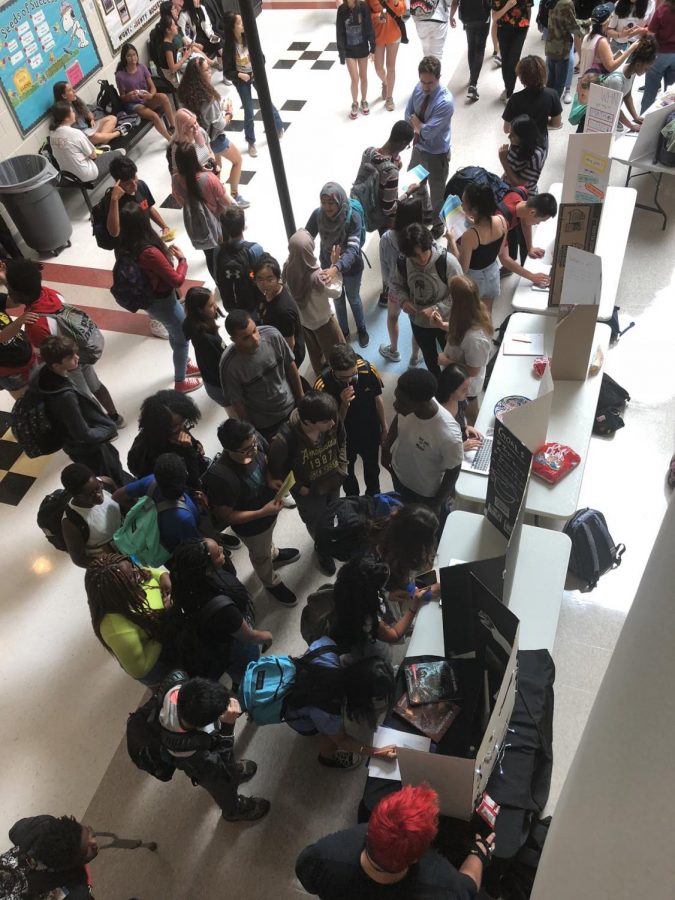Even in the midst of a pandemic, Richard Montgomery clubs persevere
Photo courtesy of the Tide stock photos.
Students attending the Richard Montgomery Club Fair in Main Street on September 12, 2019.
September 30, 2020
As we head into our second month of virtual learning, many students are realizing that the shift to virtual learning isn’t just limited to the classroom. Our regular lunch and after school in-person meetings have been done away with and clubs have been forced into the online environment. Initially, students worried that they would lose out on the extracurricular experience or that few new people would join their clubs. Fortunately, students and staff successfully found creative solutions to continue club activities by utilizing online and virtual resources.
Before the school year even began, students took an active role in the revival of extracurriculars. Understanding the need to attract prospective members in a new way, many leadership boards took to social media to promote their clubs. Creating and curating these new accounts, club leaders provided thoughtful and eye-catching posts that engaged students. This allowed club membership to stay consistent, and even increase, across many clubs compared with last year.
Open communication between administration, the SGA and students allowed for new options for meeting and communication. Whether this is through teacher zoom calls, platforms such as slack or discord and social media, students have created and been provided with all the tools they need to make their clubs successful. Senior Santiago Peralta, Secretary of the Minority Scholars Program, said, “before COVID, we would usually meet two times a week, now we have a group chat.”
The ability to send mass texts, emails and posts on social media to spread the message of the club is invaluable, but these resources weren’t used to their fullest potential before the virus. A prime example of this was the club fair on Friday, Sept. 25. SGA club liaisons worked together with club leadership to create a virtual club fair where students could easily visit club zooms that they were interested in, just like how they did pre-COVID-19.
This change has been widely received positively since it simulates the club community at RM and allows students to connect with others. Senior Veda Peter, Co-president of RM Minds Matter, said, “we have the ability to connect with students…but because of this pandemic, more people seem to be struggling with things like loneliness, depression and other things that are very serious.” With zoom calls that allow club members to see each other face to face and interact, many students feel less alone during these isolated times.
However, some students have felt the new rules regarding zoom meetings are constraining and limit club freedom; all official club meetings are to be held in the teacher sponsor’s zoom with the teacher present. But while this does limit time flexibility for club leaders, it ensures that meeting times will be at a reasonable hour and not impose undue stress on members. Additionally, by requiring their presence, it keeps teachers engaged with the student body in times where more support is needed than ever before.
Even with all the resources available, virtual meetings will not be able to replace some aspects of in-person meetings. Senior Sarah Moghaddam, Officer in the NHS, said, “after being accepted into the club, the principle would give a speech and there would be a really nice ceremony, but that seems like it’ll happen virtually this year and I feel that it just won’t be the same.” However, this also prompts the introduction of new traditions that can be done in a virtual setting and may be easier to access for everyone.
COVID-19 has inspired the use of new resources and adaptations that will be integrated into the operation of future clubs. For as long as quarantine keeps us out of school, new changes and compromises will be made to improve the efficiency of virtual clubs. The virtual transition, though not perfect, successfully maintains the high school club experience.


